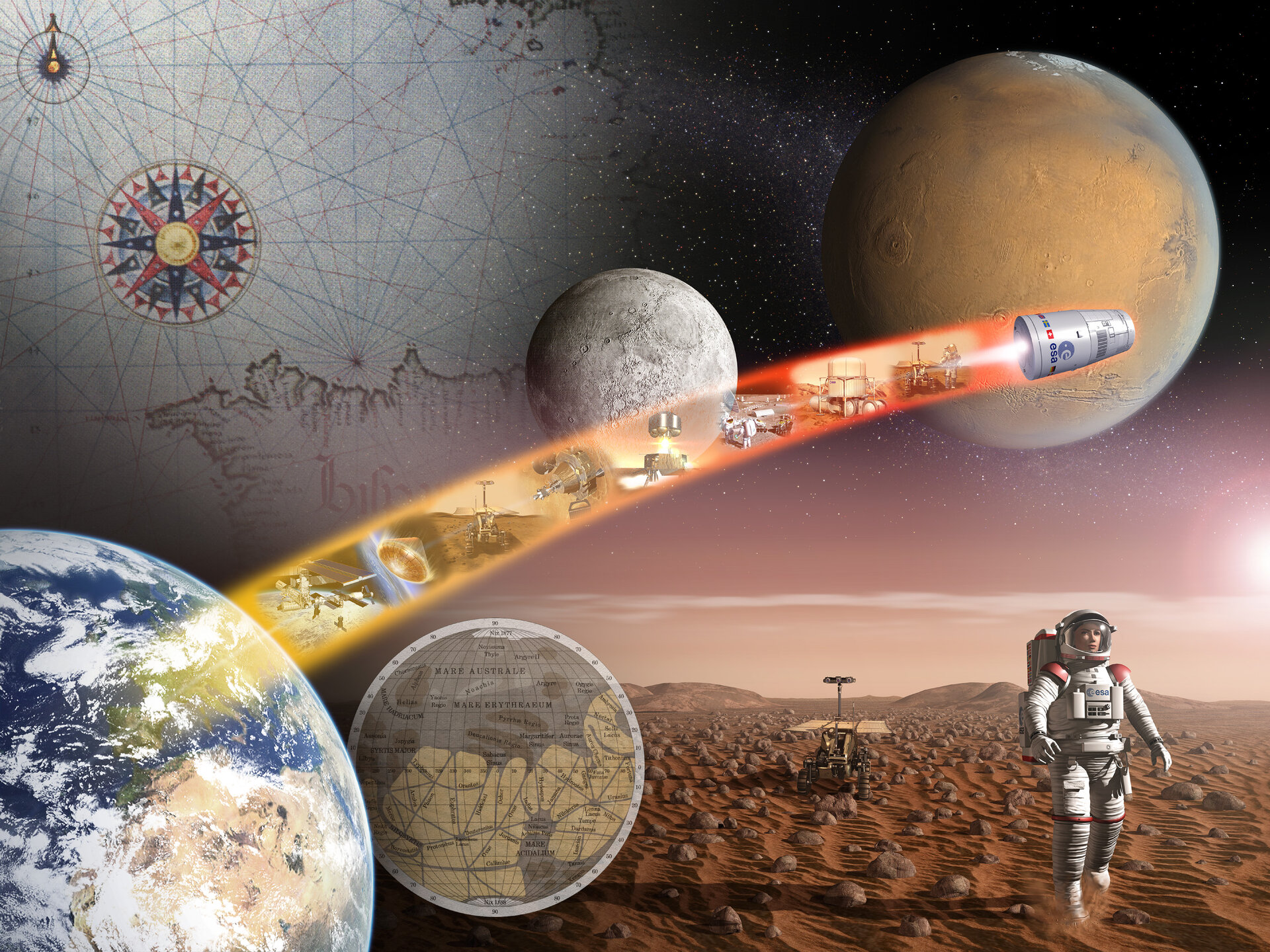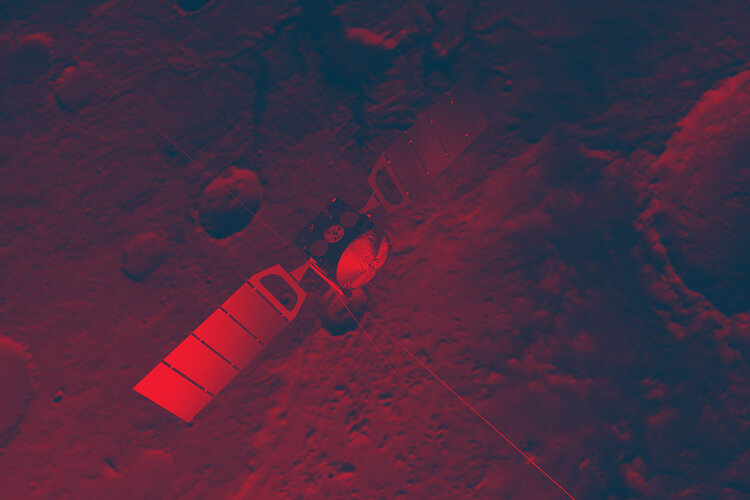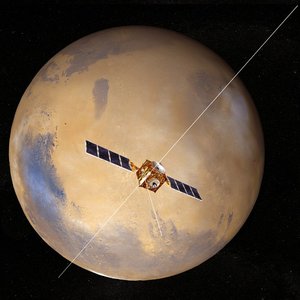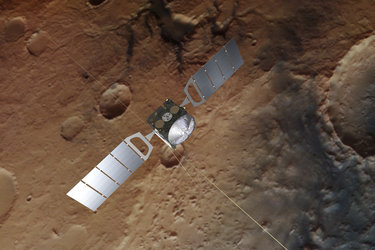Europe reclaims a stake in Mars exploration
From the Greeks more than two thousand years ago to Eugene Antoniadi in the mid 1900s, Europeans have made many important observations of Mars with the naked eye and through Earth-bound telescopes. They have even contributed their fair share of speculation and fantasy about the planet in a fine tradition beginning in 1897 with the publication of The War of the Worlds by H.G. Wells in which hostile Martians invade Earth.
Europe, however, had never sent its own spacecraft to Mars until 2003. The European Space Agency's Mars Express orbiter was launched on 2 June 2003 and it has been playing a key role in an international exploration programme since.
Research institutes throughout Europe provided the instruments on board the orbiter. Some were first developed for the ill-fated Russian spacecraft, Mars '96. Now upgraded, they provide remote sensing of the atmosphere, ground and up to five kilometres below the surface, to a degree of accuracy never before achieved.
The information gleaned is helping answer many outstanding questions about Mars, including the fate of water that once flowed freely on the planet’s surface early in its history.
Mars Express also carried a lander, Beagle 2. It would have been the first lander since NASA's two Viking probes in the 1970s to look specifically for evidence of past or present life. Unfortunately, Beagle 2 was declared lost after it failed to make contact with orbiting spacecraft and ground-based radio telescopes.
European astronomers: Mars discovery highlights
| Astronomer | Date | Country | Discovery |
|---|---|---|---|
| Nicolaus Copernicus | 1473–1543 | Poland | Described the motion of the planets, including Mars, around the Sun |
| Tycho Brahe | 1546–1601 | Denmark | First to map accurately the movement of Mars across the sky |
| Johannes Kepler | 1561–1630 | Germany | Worked out the orbit of Mars |
| Galileo Galilei | 1564–1642 | Italy | First to observe Mars through a telescope |
| Christiaan Huygens | 1629–1695 | The Netherlands | First to observe a feature on Mars, the Syrtis Major |
| Giovanni Cassini | 1625–1712 | France | First to observe the poles of Mars |
| William Herschel | 1738–1822 | United Kingdom | First to measure the diameter of Mars |
| Giovanni Schiaparelli | 1835–1910 | Italy | Described 'canali' (channels) misinterpreted as canals on Mars |
| Eugene Antoniadi | 1870–1944 | France | Produced the most accurate map of Mars before the space age |







